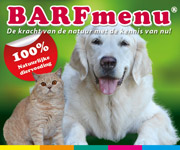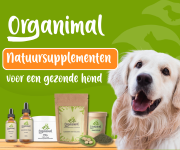Ik zou mijn katten helemaal geen knoflook geven. Katten zijn er erg gevoelig voor.
Voor de geinteresseerden (helaas wel in het engels) hier een verhaaltje van de Yahoo! Feline-CRF Supportgroup:
Info over giftigheid van knoflook/uien voor katten en een aantal links naar artikelen over het onderwerp:
------------------------------------------------------------------------
After the last garlic discussions went on, I was contacted off List by someone who vehemently asserted that garlic and onion both contain disulfides, just not the SAME toxic disulfide. Although I've quoted Dr. Rebecca Remillard (certified veterinary nutritionist, ACVN) severaltimes on garlic toxicity, I took my correspondent's advice and contacted the ASPCAto ask specifically about the disulfide in question.
Interestingly, far from getting the "OK" on garlic that I was assured I would receive from my correspondent, the veterinary toxicology report, Poison Control Center sayscats are even MORE sensitive to garlic than are dogs.
I received permission from the ASCPA to post their responses in full to three cat Lists. There's a lot of info here, so if interested, put on your reading glasses!
I've organized the correspondence in the order it occurred: 11/6/2001 -0500, I wrote to the National Animal Poison Control Centerfrom the ASPCA website:’'s the story???Thank you very much,Claire Powell>The response:’'s body weight) determines whether or not a problem is likely.
I personally think that the disadvantages outweigh the advantages of garlic use in small animals.
However, the likelihood for toxicity depends on thedose and frequency of ingestion. In cases of toxicity, there can be serious signs similar to those of onion toxicity. It is possible that certain animals may be more sensitive to the effects of garlic than other animals, so it would likely be somewhat difficult to determine what dose is safe.
A person who is interested in using garlic in their small animal may want to contact a veterinarian who recommends these types of treatments. For more information, check out HREF="
http://www.apcc.aspca.org/vettech
/aug 01.htm">httpHREF="
http://www.ap cc.asp\ ca.org/vettech/aug01.htm">
http://.apcc.aspca.org/vet tech/aug01.htm
Mindy G. Bough, CVTASPCA Pet Nutrition and Science Advisory Service HREF="
http://www.apcc.aspca.org/nutrit ion.htm">
http://www.apcc.aspca. org/nutrition.htm
1-866-816-4804
In a follow up, I asked:’'s Beppo>
http://www.ncbi.nlm.nih.gov/entrez/query.fcgi?cmd=Re trieve&db=PubMed
&list_uids=11 108195&dopt=Abstract
This abstract addresses garlic administration in dogs. Keep in mind that cats are even more sensitive than dogs. Feline hemoglobin dissociates 10X more readily than other species. You have our permission to post my response elsewhere as long as thetext is not altered and the credit remains with the ASPCA Animal Poison Control Center including phone number and web url.
You may have some difficulty reaching our site for the next day or two (technical difficulties).
An option for reaching the site immediately is go to www. aspca.org, then click on Animal Poison Control.ASPCA Animal Poison Control Center
1-888-426-4435
www.napcc.aspca.org
Mindy G. Bough, CVTASPCA Pet Nutrition and Science Advisory Service http ://
www.apcc.aspca.org/nutrition .htm
1-866-816-4804








